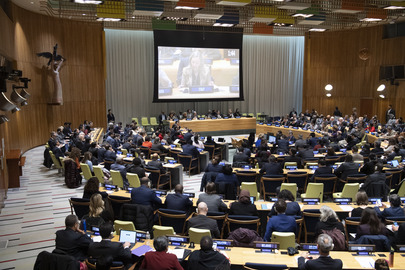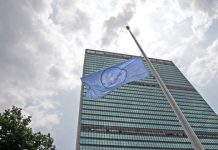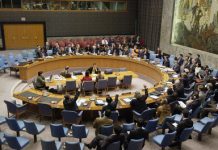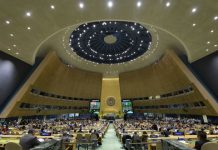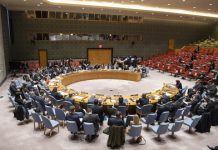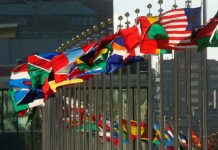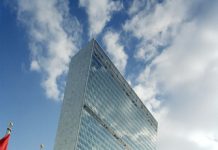1,000 days into Ukraine war, winter poses critical challenge to aid effort
In the nearly 1,000 days since Russia’s full-scale invasion of Ukraine, thousands of civilians have been killed, the country’s energy capacity is on the brink and drones continue to terrify communities on the frontline.
That’s the message from the UN’s top aid official in the country, Matthias Schmale, who’s been describing the suffering of Ukrainians as the war grinds on – and the ongoing difficulties and dangers of delivering aid today:
“The work on the frontline is dangerous; what we are observing and again many people have told me on my visits that they feel civilians and civilian infrastructure and civil society are increasingly targeted by drone attacks; and drone attacks are terrible, I don’t need to describe that to you.”
Mr. Schmale expressed deep concern about the coming winter, since more than 40 per cent of Ukrainians already need humanitarian assistance. A great many people still live in high-rise apartments that they cannot heat, because of “systematic” Russian strikes on power infrastructure, he added.
To date, the UN and partners have reached 7.2 million people in Ukraine with at least one type of aid, thanks to the $1.8 billion received for the humanitarian response. To prepare for winter, the UN and partners now require a further $500 million.
COP29: Governments, industry must stop ‘lip-service’ on methane
To the COP29 climate talks in Baku where the head of UNEP, the UN Environment Programme, has stressed the need to bring methane emissions fast, if we’re to have any chance of controlling global warming.
Inger Anderson stressed that a proven early warning system exists – called the Methane Alert and Response System (MARS); it identifies major leaks around the world so that they can be stopped, often with simple repairs.
The problem is that over the past two years, only one per cent of some 1,200 leak alerts which are called methane plumes have prompted a response from governments and industry.
“We are quite literally talking about screwing bolts tighter in some cases,” Ms. Anderson said at the meeting in Azerbaijan, where tough talks are expected over the weekend between experts and government climate negotiators over climate finance and emission reductions.
The goal is to reach an agreement by the time the meeting wraps up on Friday 22 November.
According to the UN environment agency, human-caused methane emissions are responsible for roughly one-third of the planet’s warming. It insists that reducing these emissions is the fastest, most cost-effective way to slow global warming because it has a shorter lifespan than carbon dioxide, or CO2, another heat-trapping gas.
In Gaza: chaos and hunger are the norm, say UN aid coordinators
To Gaza finally, where the war continues to “kill, injure and displace Palestinians on a devastating scale”, the UN aid coordination office, OCHA, has said.
In its latest update OCHA also warned that the conflict “continues to pose unacceptable risks to aid operations” despite “repeated calls for safe, unimpeded access to reach people in need”.
With more, here’s OCHA spokesperson Jens Laerke:
“Access is at a low point. Chaos, suffering, despair, death, destruction. Displacement is at a high point. We have seen, as you know, and been particularly concerned about the situation in, in the north, of Gaza, which is now effectively under siege. And it is near impossible, to deliver aid in there.”
The development comes as a vendor in Gaza City in the north of the enclave told UN News that “99 per cent “are suffering from hunger because there is not enough food” to go round. Vegetables, poultry and essential healthy items are non-existent, the vendor said.
Another Palestinian woman said that prices were “sky-high; flour is available in the north of Gaza but (there are) no vegetables or canned goods…No one has money to buy any kind of food, there are no eggs, no milk (and) no nutrition for children,” she said.
Daniel Johnson, UN News.
Music composed and produced by Joachim Harris. All rights reserved
Source of original article: United Nations (news.un.org). Photo credit: UN. The content of this article does not necessarily reflect the views or opinion of Global Diaspora News (www.globaldiasporanews.com).
To submit your press release: (https://www.globaldiasporanews.com/pr).
To advertise on Global Diaspora News: (www.globaldiasporanews.com/ads).
Sign up to Global Diaspora News newsletter (https://www.globaldiasporanews.com/newsletter/) to start receiving updates and opportunities directly in your email inbox for free.


